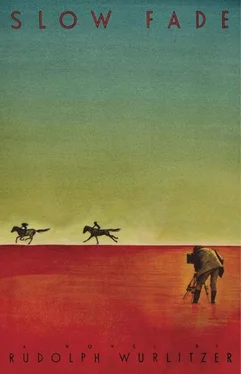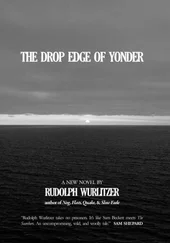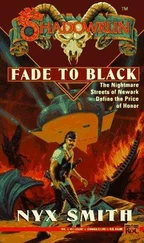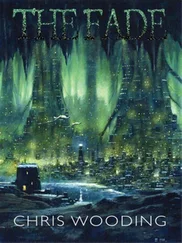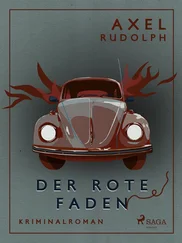Wesley felt a quick slice of pain in his shoulder and a shortening of his breath and he leaned against a bulkhead and waited until the sensation passed. “I’m not feeling all that well,” he said. “I’m going to lie down in a cabin somewhere. You do whatever you have to with Toulouse. I don’t care. Just don’t tell me about it.”
“That’s good enough for me,” A.D. said.
He helped Wesley go below and find an empty cabin. Then he went back to Toulouse and tried to make a deal.
AS SOON as they docked, Toulouse’s chauffeur drove Wesley back to his hotel. Evelyn had not arrived yet and he sat for a while on the living room couch with the lights off. He was still numb and disoriented, but much of the dread had slacked off and suddenly he just wanted to get out. He wanted to leave this darkened room and then the hotel and then no doubt the city and after that it wouldn’t matter. He went into the bedroom and packed a bag. He had three thousand dollars in cash and he left five hundred for Evelyn and wrote her a check for five thousand more. “Going North” he wrote on a room service menu and left it on the bed. Then he took the elevator to the street and walked aimlessly down Fifth Avenue. After forty blocks he took a cab to the airport, but it wasn’t until he told the driver to stop at Air Canada that he fully realized he was leaving the country. The first flight available was to Montreal and when he arrived it was ten at night.
He booked a room at the Holiday Inn and slept all that night and the next day and night, and when he awoke the following morning he knew what he was going to do. In a department store he bought a large duffel bag and filled it full of long underwear, wool shirts and pants, and other durable clothes suitable for the far north. Then he took a cab to the airport, booking a flight to Stephenville, Newfoundland, where he hired a float plane. The float plane took off straight into a vicious sunset, and thirty minutes later Wesley recognized the blunt shape of Slab Island squatting in the Gulf of St. Lawrence like a massive battleship. There was still enough light to distinguish a small pod of finback whales making their way north toward the Strait of Belle Isle. When he was a child the Inuit had killed them just for muktuk, the slabs of skin and blubber they loved to chew on, and it moved him now to see the whales passing the island. The plane flew over French Tickle, the long narrow fiord cutting into the heart of the island. Beneath him were forests of fir and black spruce and the same barrens where he had slogged through miles of bogs and lichen heaths hunting for caribou and moose. He thought about the island and how little it had changed. Fewer changes than he had gone through in his life. No doubt. First there had been the Portuguese whalers who had been forced to winter there. After them had come the trappers and shipwrecked sailors, and then the Inuit and Beotucks, attracted by all the action, had drifted in to trade. The only change after that was a hundred years later when the Brethren of the Moravian Church, unable to resist one of the bleakest places on earth, firmly planted their message on the simplicity and total practicality of God and never left.
It was the white frame structure of the Moravian Church that Wesley looked for as they banked and flew in directly over the long wooded bay. When it wasn’t there he panicked and thought of his namesake, the eighteenth-century convert John Wesley, who had witnessed the profound calm of the Moravians on a voyage from England to the New World. Faced with a violent storm off the coast of Labrador, the ecstatic pilgrims had sung hymns in terrifying transports of joy as the sea poured over the gunwales and the mainsail split in two.
Wesley took a pull from his half-empty bottle of rum and quoted John Wesley’s observation of the Moravians to the pilot: “I can conceive of no difference between a smooth and a rough sea, except that which is between a mind calmed by the love of God and one torn by the storms of earthly passions.”
The pilot nodded pleasantly at the old drunk as the pontoons settled gently over the water and they sped across the bay toward Tilt Cove, a settlement sheltered from the north wind by somber granite cliffs.
There was only one boat out, a small open dory, and the young boy standing at the tiller waved to them as they passed.
“Going home?” the pilot asked.
“Going home,” Wesley said.
“You’d have to pay me to live in a place like this.” The pilot feathered his engine and brought the plane around so that it glided up against the wooden dock.
The usual crowd of kids and old-timers were waiting for the plane. One of the old-timers recognized Wesley.
“It’s Wes Hardin.”
“Well it is.”
“Been on the outside a good long time.”
“In the States, from what I heard.”
“He’ll be going to the house.”
“I guess. Where else would he go?”
One of them called out to him and Wesley was afraid to look, nodding and tossing the bottle over as he climbed out of the plane. A sharp wind came in gusts from the northwest, and his entire body felt the chill as he walked down the dock, behind him a gang of kids fighting for the privilege of carrying his bag.
All was not as he remembered. The first change was the gutted cannery at the end of the dock and past that the Moravian Church, which looked like a movie set, nothing remaining but the front wall, a TV satellite disk standing among the rubble where the building used to be. A thick silence hung over the town which made him oddly apprehensive until he realized there were no dogs, that snowmobiles had done away with the need for them. Before there had always been a constant howling and barking, but now there was only the odd sound: a shout, a burst from a chain saw, the slam of a front door. There were prefab houses now and the Hudson Bay Post was new, a large Quonset where the old barnlike structure had stood, but everything else seemed the same. The town was still divided between whites on the west end and Inuit and Indians on the east end. There were still no streets, the houses scrambled about in gullies and declivities among the pitted black boulders and rocks. Salmon and char hung from clotheslines and a variety of new and busted snowmobiles, boat engines, and water pumps lay scattered everywhere.
He walked through the town, past the Hudson Bay Post and the old shingled houses that had held the same family name for over a hundred years. Stopping to rest after every few steps, he climbed the steep hill in back of the town until he stood winded and dizzy before an ancient two-story house whose paint had long since peeled off and whose peaked gabled roof was exposed to patches of black roofing paper. Two of the upper windows were covered with plywood and a two-by-four had been nailed across the front door, but a thin line of smoke rose out of the chimney and a light was on in the kitchen. He gave the kid carrying his bag a dollar and went inside the kitchen door.
The kitchen smelled of spoiled fish and the floor was caked with dirt. Kindling had been dumped in a loose pile near the door and plastic was nailed over two of the rear windows where the panes had been broken. Wesley recognized the Enterprise woodstove and the black kettle on the back burner, but there was a man sitting in a chair near the icebox that he had never seen before. He was very old, with a curtain of thin white hair framing his face. Half his teeth were missing and a long scar slanted one eye, pulling down the corner of his mouth. His heavy cord pants were held up by rope suspenders and the top of his long johns was stained with grease.
He looked at Wesley with pale rheumy eyes. “If you be government, you can leave right now. I got no regrets. The man cheated me on my pelts. I’ll bust him in the windpipe again if’n I feel like it.”
Читать дальше
